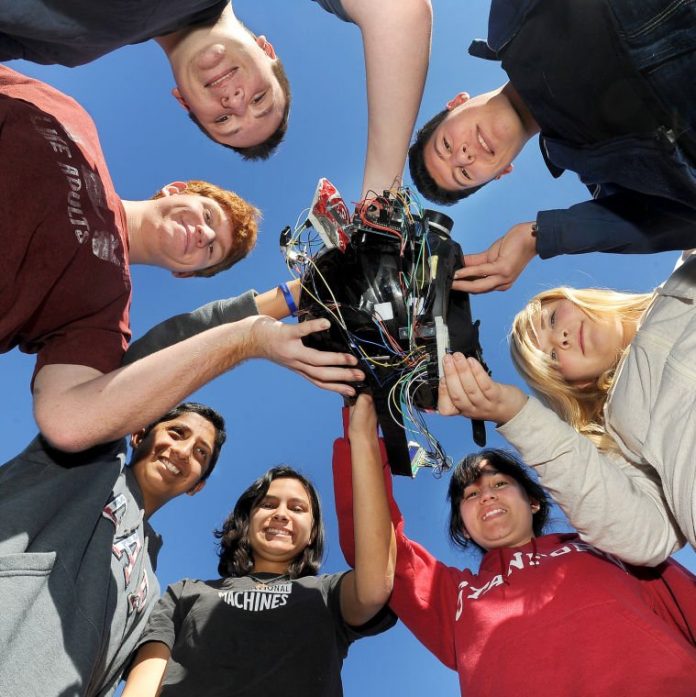
When 18-year-old James Abundis moved from Quincy, Massachusetts to Gilroy in August, the Christopher High School senior brought more than just his Boston Red Sox fandom.
Abundis brought his passion for engineering and has since started his own school club, called Engineers for Tomorrow. The club’s purpose is to further students’ interest in careers based on science, technology, engineering and mathematics.
“I’ve always kind of liked to build things, but it wasn’t until my freshman year did I understand why,” said Abundis, whose interest peaked while taking an engineering design class at his old high school in the greater Boston area.
However, when he arrived at CHS, there were no similar classes offered.
“I do like (CHS). I like the atmosphere of it better. I see a lot of benefit here,” said Abundis of his new high school. “But they didn’t have any engineering classes whatsoever.”So Abundis founded his own, and has since attracted 12 students to join. The club meets twice weekly during lunch and again over the weekend. Abundis started off by teaching some of the basics of programming and engineering. Club members then built a robot and programmed it to track weather data such as temperature and barometric pressure.
“I basically give them an objective – ‘you have to use these components to solve this’ – and tell them to give it your best shot,” explained Abundis, who even set up his own club website, www.etomorrow.org.
Now, the Engineers For Tomorrow club wants to expand their horizon to the final frontier by programming a satellite for a week’s worth of space travel departing from the International Space Station. That venture, however, costs about $2,000 and the club is hoping to fundraise and attract sponsors for the unique opportunity.
Anyone interested in sponsoring the club should contact advisor Patricia Budd at pa***********@***********ed.org or call CHS at (408) 843-4128.
NanoSatisfi, a satellite company headquartered in San Francisco, facilitates the space exploration program, where students program the small satellite cube in orbit. Abundis said the club is programming the satellite to take pictures of earth from various coordinates and will compare the GPS data to accelerometer data to determine how GPS works in space. An accelerometer is a device that measures proper acceleration.












